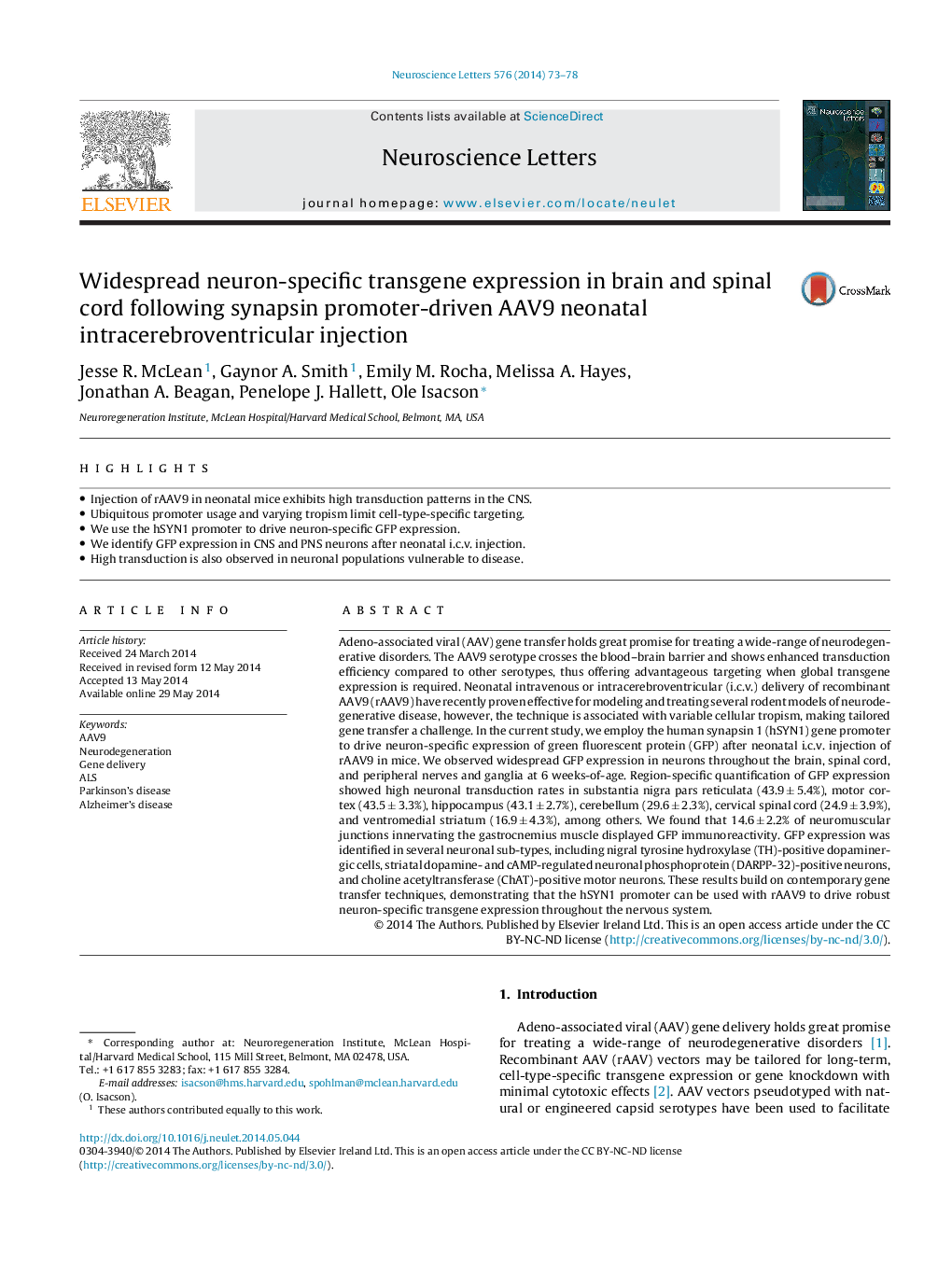| کد مقاله | کد نشریه | سال انتشار | مقاله انگلیسی | نسخه تمام متن |
|---|---|---|---|---|
| 6281927 | 1615123 | 2014 | 6 صفحه PDF | دانلود رایگان |

- Injection of rAAV9 in neonatal mice exhibits high transduction patterns in the CNS.
- Ubiquitous promoter usage and varying tropism limit cell-type-specific targeting.
- We use the hSYN1 promoter to drive neuron-specific GFP expression.
- We identify GFP expression in CNS and PNS neurons after neonatal i.c.v. injection.
- High transduction is also observed in neuronal populations vulnerable to disease.
Adeno-associated viral (AAV) gene transfer holds great promise for treating a wide-range of neurodegenerative disorders. The AAV9 serotype crosses the blood-brain barrier and shows enhanced transduction efficiency compared to other serotypes, thus offering advantageous targeting when global transgene expression is required. Neonatal intravenous or intracerebroventricular (i.c.v.) delivery of recombinant AAV9 (rAAV9) have recently proven effective for modeling and treating several rodent models of neurodegenerative disease, however, the technique is associated with variable cellular tropism, making tailored gene transfer a challenge. In the current study, we employ the human synapsin 1 (hSYN1) gene promoter to drive neuron-specific expression of green fluorescent protein (GFP) after neonatal i.c.v. injection of rAAV9 in mice. We observed widespread GFP expression in neurons throughout the brain, spinal cord, and peripheral nerves and ganglia at 6 weeks-of-age. Region-specific quantification of GFP expression showed high neuronal transduction rates in substantia nigra pars reticulata (43.9 ± 5.4%), motor cortex (43.5 ± 3.3%), hippocampus (43.1 ± 2.7%), cerebellum (29.6 ± 2.3%), cervical spinal cord (24.9 ± 3.9%), and ventromedial striatum (16.9 ± 4.3%), among others. We found that 14.6 ± 2.2% of neuromuscular junctions innervating the gastrocnemius muscle displayed GFP immunoreactivity. GFP expression was identified in several neuronal sub-types, including nigral tyrosine hydroxylase (TH)-positive dopaminergic cells, striatal dopamine- and cAMP-regulated neuronal phosphoprotein (DARPP-32)-positive neurons, and choline acetyltransferase (ChAT)-positive motor neurons. These results build on contemporary gene transfer techniques, demonstrating that the hSYN1 promoter can be used with rAAV9 to drive robust neuron-specific transgene expression throughout the nervous system.
Journal: Neuroscience Letters - Volume 576, 25 July 2014, Pages 73-78